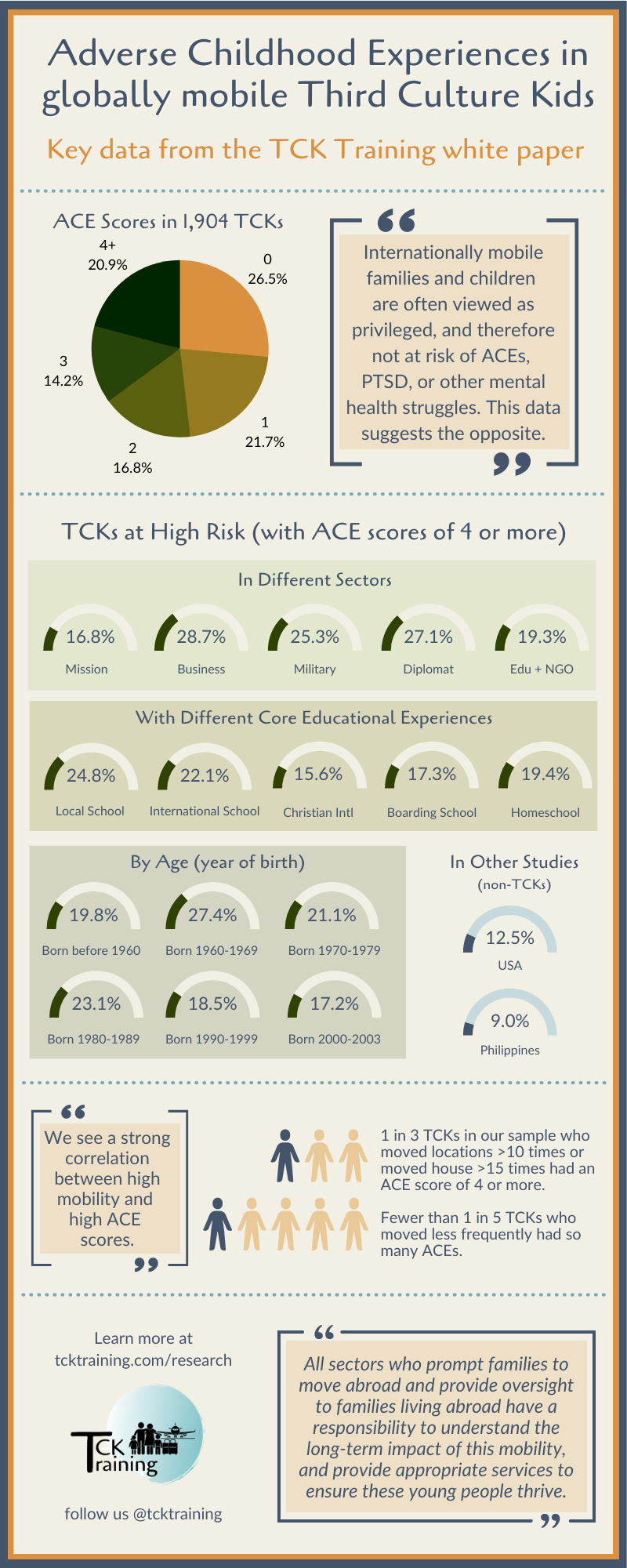Caution and Hope: The Prevalence of Adverse Childhood Experiences in Globally Mobile Third Culture Kids
In 2021, TCK Training conducted a survey of over 2,000 Third Culture Kids (TCKs) to learn more about Adverse Childhood Experiences (ACEs) in the TCK population. After months of data analysis we published our first white paper in June 2022, which shared some of the information we gathered and how it might be applied. Since then, we have also published a series of short blog posts that share data from the white paper specific to sending organizations and educational experiences identified by our respondents. If you are interested in a particular sector, this is a great place to start with our data.
Data by Sector:
Data by Education:
ACEs have been well researched since the 1990s, with studies conducted around the world. This makes it a helpful measure to see whether TCK experiences are statistically likely to have a quantifiable long-term impact. A score of 4 or more out of 10 childhood experiences has been strongly associated with a wide range of negative behavioural, emotional, and physical health outcomes in adulthood.
In our white paper we share data on four key demographics (sector, education, age, and mobility) and how these factors did, or did not, impact rates of Adverse Childhood Experiences among the 1,904 globally mobile Third Culture Kids in our sample.
Here is an excerpt from the paper:
"Research in the US showed a rate of 12.5% of the population with an ACE score of 4+; in the Philippines it was 9%. In our non-random sampling of 1,904 TCKs, 21% had an ACE score of 4+, putting them at risk for negative health outcomes. In those experiencing high mobility (10+ locations, or 15+ houses) the rate of 4+ ACEs rose to 32% and 33% respectively. Mission Kids had lower ACE scores than those in other sectors, with 17% having 4+ ACEs compared to 26% of non-mission TCKs. This is still higher than the 4+ ACEs rates recorded in non-TCKs samples, however.
A high ACE score does not condemn an individual to a difficult adulthood, but it is a risk factor worth noting. Positive Childhood Experiences (PCEs) are a proven way to prevent ACEs leading to negative health outcomes. The high ACEs experienced by TCKs in our sample indicate that deliberate implementation of PCEs by all globally mobile sectors is an important protective measure for the long-term health of families. We believe that knowledge and implementation of PCEs is a responsibility of those who send and care for globally mobile families, especially in the light of this data."
We also prepared an infographic with key data (stats and quotes) from “Caution and Hope” which you can view below.




